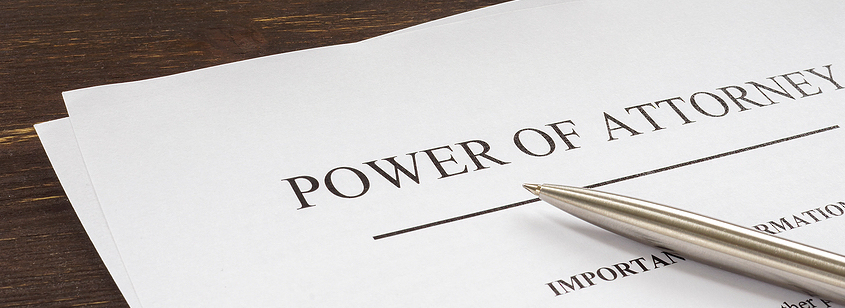Power of Attorney Duties after the Principal’s Death
Power of attorney (POA) is a legal document that authorizes someone to act on behalf of another person. The person who designates power of attorney is the principal. The person acting on behalf of the principal is known as the agent.
This can be helpful if you need to delegate authority temporarily to manage finances, make medical decisions, or handle other legal matters when you are unable to act on your own behalf, such as during medical emergencies or extended travel abroad.
However, after the principal dies, a question often arises: who will handle their estate and manage affairs? The answer is a person with power of attorney doesn’t necessarily continue to manage the principal’s affairs after death.
Types of POA
If you are in a situation where you are considering granting power of attorney, you may be wondering what arrangement is most suitable. There are several common types of Power of Attorney designation:
- General POA
General POA grants a designated agent the power to make decisions on behalf of the principal for a broad spectrum of matters, including banking transactions, sale or purchase of property, or contractual agreements. This should be used only in specific situations, as it grants extensive control to an agent to act on the principal’s behalf.
- Durable POA
Durable Power of Attorney grants power to an agent if the principal becomes mentally incapacitated. This differs from other POAs, as typically, they are structured to end if you are mentally incapacitated. It’s important to note this doesn’t replace a conservator arrangement, as DPOA must be granted while the principal still has full mental faculties and cannot be granted retroactively.
- Limited or Special POA
A limited POA allows a principal to grant power of attorney to an agent for use only in specific circumstances, such as cashing checks. Typically this type of POA is only granted for a set period or a particular task.
- Medical Power of Attorney
Medical POA allows a principal to designate a specific health care agent to make medical decisions if they are incapacitated. This can include making decisions on medical treatments, surgery, life support, organ donation, and medical records release. An agent with medical POA also ensures a Living Will directive or Do Not Resuscitate order is carried out according to the principal’s wishes.
What happens after the principal’s death?
The validity of an assigned power of attorney expires in the event of the principal’s death. This means a person with POA of any kind can no longer act on behalf of the principal. A power of attorney order also cannot substitute or replace a will.
Once the principal has died, only a designated estate executor can manage the principal’s estate. A person with POA might also be the executor of a will, but it isn’t automatically assigned. Once the principal dies, their last will and testament will guide how their affairs should be handled. If they do not have a will, it falls to the courts to distribute any assets.
LPEP Law is Here to Guide You
If you have questions regarding power of attorney arrangements, reach out to the experienced team at Lonich Patton Ehrlich Policastri to discuss. Our team of seasoned family law and estate planning attorneys have years of experience in San Jose and the Bay Area and are ready to guide you to find the right solution.
Call 408-553-0801 or fill out our contact form to schedule a complimentary 30-minute consultation today.




